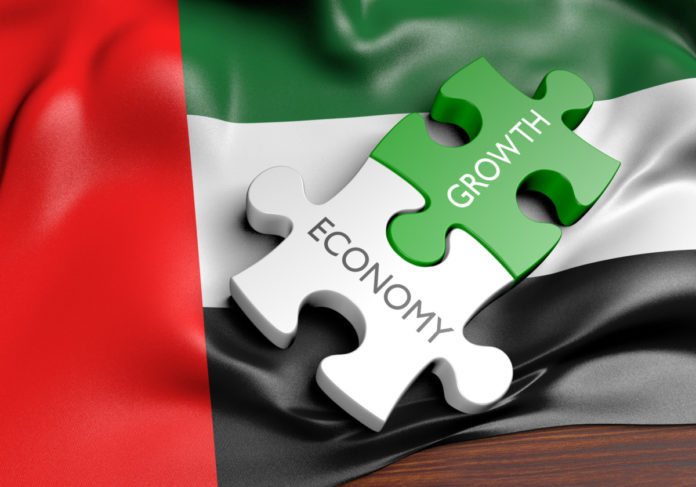The UAE’s overall real GDP grew by 2.9 per cent in 2019 as compared to 1.7 per cent in the previous year, mainly driven by the growth in the non-hydrocarbon sector, the Central Bank of The UAE has said in its fourth-quarter report.
“The overall real GDP is estimated to have grown by 2.9 per cent in 2019, driven by the growth in the non-hydrocarbon sector – estimated at 1.1 per cent and by the hydrocarbon sector for which growth is estimated at 7.6 per cent in 2019. The hydrocarbon sector exhibited significant growth, mainly due to the two-digit growth in condensates and natural gas production,” the Central Bank report said.
The figures are higher from its estimate predicted in the third quarter reports and also substantially higher than the International Monetary Fund’s (IMF) forecast of 1.6 per cent last year. The IMF has revised UAE’s growth outlook downward from 2.8 per cent in April 2019 to 1.6 per cent in October. For 2020, it had cut by 0.8 per cent to 2.5 per cent and had projected a growth of 2.5 per cent growth rate till 2024.
According to a Moody’s forecast, the overall real GDP growth was predicted to remain stable at 1.7 per cent in 2019 and 1.4 per cent in 2020, compared with 1.7 per cent in 2018, thereby stabilising below the 4.8 per cent annual average of 2011-16.
According to the Central bank, the economic sentiment improved in the fourth quarter of 2019, benefiting from an increase in government spending and increase in oil prices as well as robust performances in labour and credit markets.
An S&P report, earlier in Feb, said that it expected UAE economy to expand at a slightly higher pace compared with last year, thanks to Abu Dhabi’s $13.6 billion stimulus package and the Dubai government’s planned investments for the 2020 World Expo (Expo 2020), which should prop-up investments in the nonoil economy and increase tourism-related activities.
The report also said that the Dubai market continues to decline in rent due to excess supply and added that property prices in Dubai fell by 7.0 per cent in the fourth quarter from a year earlier, compared with an 8.2 per cent drop in the previous quarter. For Abu Dhabi, the central bank said residential property prices fell 7.5 per cent in the fourth quarter from a year earlier, moderating from a drop of 8.2 per cent in the third quarter.






